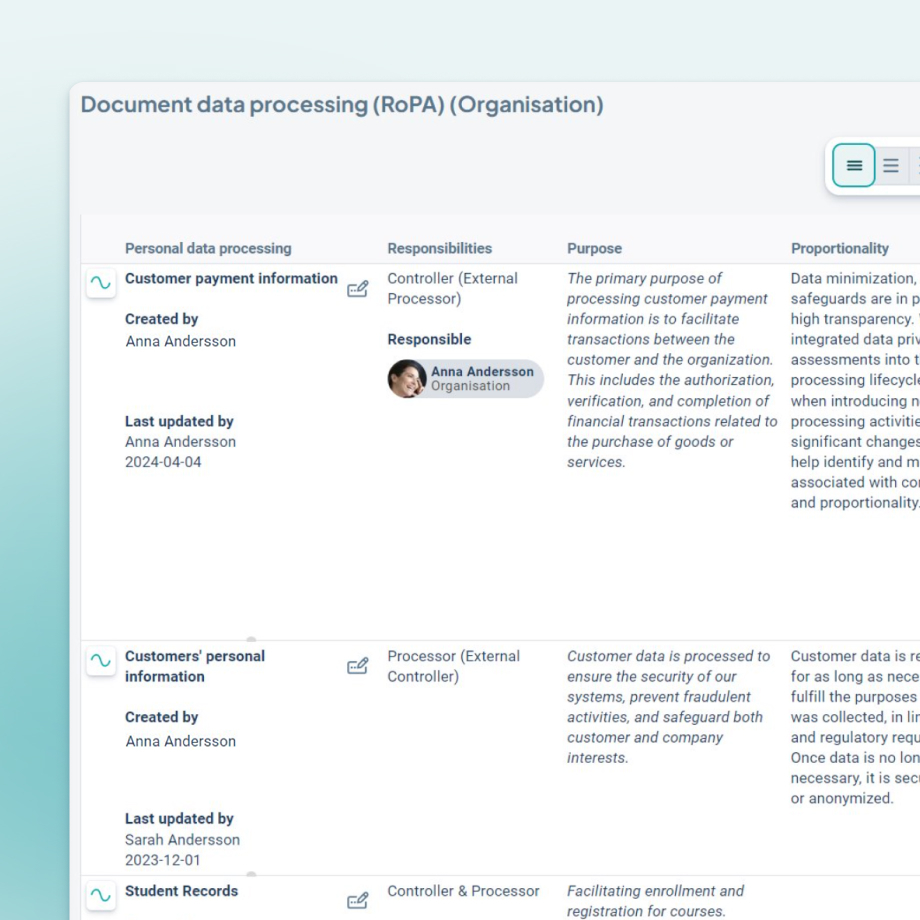Mapping and documenting personal data processing operations
Handling personal data often involves large amounts of data and a lot to keep track of. A common challenge many organizations have is to effectively map and document personal data. With the help of Stratsys, you can do this in a simple and time-efficient way.


.png?width=690&height=690&name=gdpr%20(1).png)





%20(1).png?width=600&height=600&name=imaginestratsys_a_woman_standing_outside_an_office_builing_ente_68b8e2c9-0420-480c-81bd-564fe7a586c2%20(2)%20(1).png)